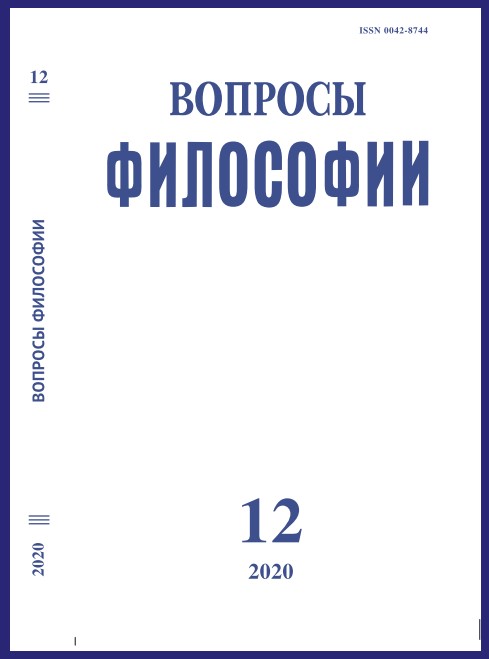The Revolutionary Conservatism of Normal Science
DOI:
https://doi.org/10.21146/0042-8744-2020-12-157-160Keywords:
T. Kuhn, paradigm, normal science, field of science, revolution, expertise.Abstract
The article analyzes the functioning of normal science. It has conservative features and implies the restriction of research practices to solving puzzle, rarely reflects on the ontological assumptions of its own paradigm. Such functioning of normal science allows it to solve a large number of various scientific and scientific-technical problems. As a result, normal science is developing quite rapidly. At the same time, revolutionary features can be distinguished in its functioning. They are associated with the struggle of each specific normal science for its position in the field of science, in the desire, through the dissemination of the results of its research beyond the scientific community and active participation in the examination, to enlist the support of extra-scientific actors. Alliances with extra-scientific actors allow normal sciences to actively participate in the struggle for the redistribution of public attention and the financing of scientific research. With the help of such alliances, they are trying to introduce the results of their research into industry and public life. The success of such implementations leads to an active redistribution of positions in the field of science. In this case, the revolutionary element of normal science is associated not with the desire to reconsider the fundamental ideas underlying it, but in the desire to rebuild the system of relations within the field of science, to take a leading position in it. As a result, it is concluded that the successful functioning of normal science is associated with the desire to make permanent micro-revolutions in the field of science, subject to a conservatively protective attitude to the fundamental assumptions of its own paradigm.

